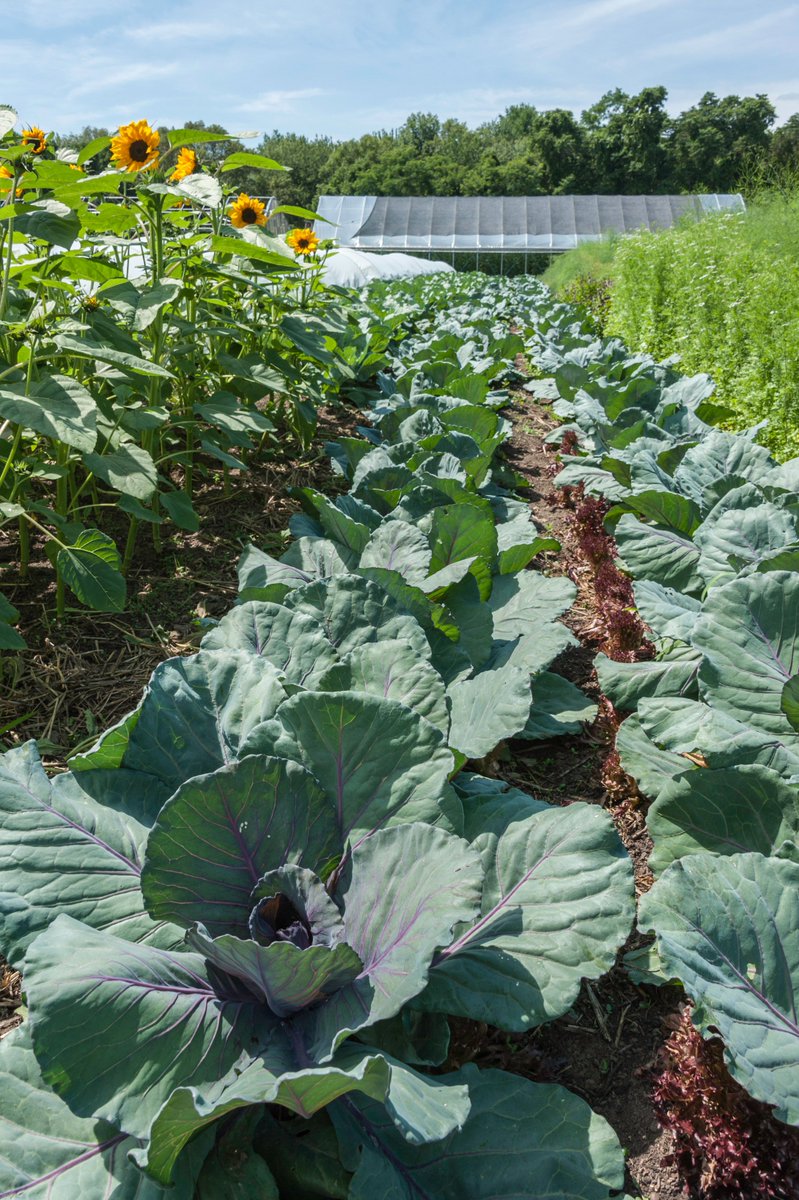A total of $276,614 will be invested to support specialty crop
production and sales in Rhode Island
 The Department of Environmental Management
announced the award of $276,614 in farm viability grants to seven Rhode
Island-based groups working to support local agriculture; the grants are made
possible by the U.S. Department of Agriculture (USDA) Specialty Crop Block
Grant Program and will support efforts to increase specialty crop production
and grow the marketplace for these crops in Rhode Island.
The Department of Environmental Management
announced the award of $276,614 in farm viability grants to seven Rhode
Island-based groups working to support local agriculture; the grants are made
possible by the U.S. Department of Agriculture (USDA) Specialty Crop Block
Grant Program and will support efforts to increase specialty crop production
and grow the marketplace for these crops in Rhode Island. USDA defines specialty crops as fruits and vegetables, dried fruit, tree nuts, and nursery crops, including floriculture and turf grass.
"We're delighted to support Rhode Island specialty crop
growers and cultivate their practices through this grant round and look forward
to the success of these projects," said DEM Director Janet Coit.
"Congratulations to these grant recipients for their innovative efforts to strengthen markets for specialty crops and foster growth in our state's farming industry."
"Congratulations to these grant recipients for their innovative efforts to strengthen markets for specialty crops and foster growth in our state's farming industry."
Grant recipients include:
Farm Fresh Rhode Island - $50,000 Funding supports the expansion of the educational component of the farm-to-school program through farm and classroom-based educational opportunities for both students and school nutrition professionals. Field trips will provide hands-on, experiential educational opportunities for Rhode Island children to understand where their food comes from and think critically about the importance of local food. A separate series of field trips will provide professional development opportunities for school nutrition professionals to identify ways to begin or strengthen farm-to-school programming through local specialty crop purchasing practices.
Caserta Productions - $49,984 Funding supports creation of seven
new episodes of the Harvesting Rhode Island television series to promote Rhode
Island specialty crop growers and educate consumers on the benefits of buying
locally-produced crops. New episodes to cover topics including young farmers
staying in Rhode Island and the cost of farmland, the relationship between
renewable energy and the loss of farmland, climate change, and vertical
growing. Discussions with farmers will include organic farming, issues about
solar panels and alternative energy on the farmland.
Northeast Organic Farming Association of Rhode Island (NOFA/RI)
- $30,950 Funding supports NOFA/RI's efforts to train and provide technical
assistance to local organic farmers. Specifically, efforts will include
continuing and enhancing NOFA/RI's farmer-to-farmer advisor program, a series
of on-farm workshops, an advanced growers' seminar, an educational conference,
and enhanced publicity/outreach/education efforts including direct contact with
consumers at farmers markets and other venues.
Southside Community Land Trust (SCLT) - $29,858 Funding supports
efforts to increase the impact of SCLT's Food Hub, which aggregates and
distributes specialty crops grown at urban farm sites in greater Providence, by
developing digital platforms for customer ordering and invoicing, and systems
for improved inventory control; providing logistical support for the increasing
volume of crops sold through the Food Hub and for coordinating with new
customers; and increasing the number of access points for low-income, socially
disadvantaged community members to buy fresh, healthy produce grown by local
farmers; and developing food systems and entrepreneurial competencies for
college-age employees.
African Alliance of Rhode Island (AARI) - $14,500 Funding supports
AARI's efforts to expand access to locally grown organic specialty vegetables,
greens and value-added products to people living in food desert neighborhoods
in upper and lower South Providence. Specifically, the project will support
AARI beginning farmers who grow produce for home consumption and to sell at
local farmers markets by creating three new pop-up farmers markets in areas
where farmers markets do not currently operate and continuing to offer
locally-sourced fresh produce at established venues.
Wishing Stone Farm - $12,375 Funding supports the development of technologies and a protocol for no-till vegetable production specific to New England soils and seasonal time horizons. The project will include soil testing to examine fertilizer and moisture needs and ways to increase the amount of organic matter levels in no-till soils. A video will be produced to update farmers on this new technology and a slideshow/talk on no-till vegetable production will be presented at the biennial meeting of the New England Vegetable Growers Association.
Additionally, DEM received $88,947 under USDA's Specialty Crop
Block Grant Program to strengthen its buy local campaign, "Get Fresh, Buy
Local."
The funds will be used to help increase consumer awareness and demand for specialty crop products. Rhode Island is experiencing significant growth in its agricultural and local food sector.
The state's food system now supports 60,000 jobs, and Rhode Island is one of a few states where the number of farms is on the rise, now standing at more than 1,200 farms. The state is a national leader in the percent of its farms selling directly to the public.
Green industries in Rhode Island account for more than 15,000 jobs and contribute $2.5 billion to the economy.
The funds will be used to help increase consumer awareness and demand for specialty crop products. Rhode Island is experiencing significant growth in its agricultural and local food sector.
The state's food system now supports 60,000 jobs, and Rhode Island is one of a few states where the number of farms is on the rise, now standing at more than 1,200 farms. The state is a national leader in the percent of its farms selling directly to the public.
Green industries in Rhode Island account for more than 15,000 jobs and contribute $2.5 billion to the economy.
For more information on DEM programs and initiatives, visit
www.dem.ri.gov. Follow DEM on Twitter (@RhodeIslandDEM) or Facebook at
www.facebook.com/RhodeIslandDEM for timely updates.